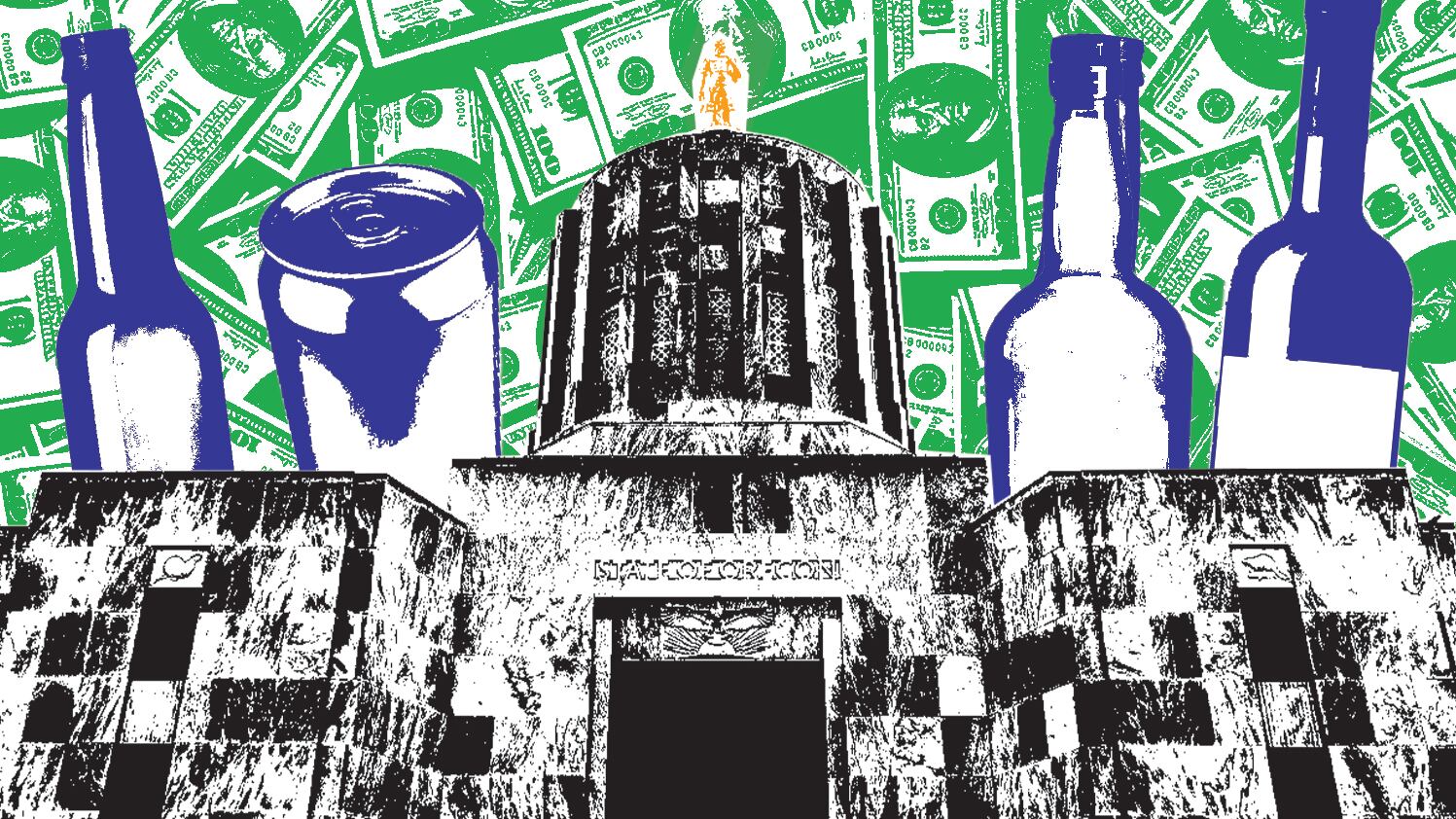As soon as January, Oregon lawmakers are expected to weigh an increase in beer and wine taxes, which have remained stagnant for more than a generation. As they do, they’ll have to ignore campaign cash from companies that would like tax rates to remain unchanged.
The Oregon Beverage PAC spends more than $300,000 every year, much of it on contributions to the campaigns of the state’s top politicians. (Its biggest funder is Columbia Distributing, the Portland beverage distributor with reported earnings of $200 million a year.)
The PAC’s spending crosses party lines, but is most concentrated with the state’s most influential legislators.
“What these contributions do is give them access,” says Mike Marshall, director and co-founder of Oregon Recovers. “Once they have access, they misrepresent the health consequences of alcohol.”
The PAC’s treasurer, Danelle Romain, says the committee’s goal is to “communicate about Oregon’s iconic beverage sector” and that money in politics is just a fact of life. “Like it or not, campaign giving is a part of the political process in Oregon, a system that we did not create,” she says.
WW reached out to the politicians who benefit most from the PAC’s largesse. Those who responded say the money buys no special treatment.
“The governor has a track record of taking all viewpoints into account when making decisions on behalf of Oregonians,” says a spokesperson for Gov. Tina Kotek, who’s received $59,500 from the PAC.
Oregon’s tax on beer, the sum of state sales and excise taxes, is the lowest in the nation, according to the Oregon Health Authority. The rate on wine is the second lowest. But Salem has not been friendly to efforts to increase them.
If it goes forward in the next session, this would be the third attempt by Rep. Tawna Sanchez (D-Portland) to pass a tax hike. After her first two bills died, she spearheaded a task force—comprising health officials, advocates, Romain and other industry reps—to present legislators with recommendations.
Their task was complicated by a series of scandals. Marshall was kicked off the task force over a crass Facebook post. Then The Oregonian reported that the Oregon Health Authority had buried a report showing increased taxes would do little to reduce problem drinking. The fact that it had been criticized by federal health officials for relying on industry-funded research was revealed later this summer by WW.
Now, the task force has been unable to reach consensus, and Sanchez has indicated the group will not issue a cohesive recommendation to lawmakers. If, as expected, she decides to push forward a bill, legislators will have to make up their own minds on its merits.
Using two decades of data kept by the state, WW calculated which sitting lawmakers have benefited the most from the alcohol lobby’s largesse, then asked each whether the money has influenced their lawmaking. Here’s what they had to say:
NAME: Former Senate Minority Leader Tim Knopp (R-Bend)
Total contributions: $153,000
What influence did it have? Did not respond to the question.
Name: Senate President Rob Wagner (D-Lake Oswego)
Total contributions: $71,000
What influence did it have? “I consider every issue that comes before the Legislature on its own merits, centering the values of my community and the needs of all Oregonians.”
Name: Gov. Tina Kotek
Total contributions: $59,500
What influence did it have? “None.”
Name: House Speaker Pro Tempore Paul Holvey (D-Eugene)
Total contributions: $51,500
What influence did it have? Did not respond to the question.
Name: Rep. Greg Smith (R-Umatilla)
Total contributions: $37,000
What influence did it have? “I would contend a robust conversation in the Legislature should occur. Let’s hear from all sides of the political spectrum.”

